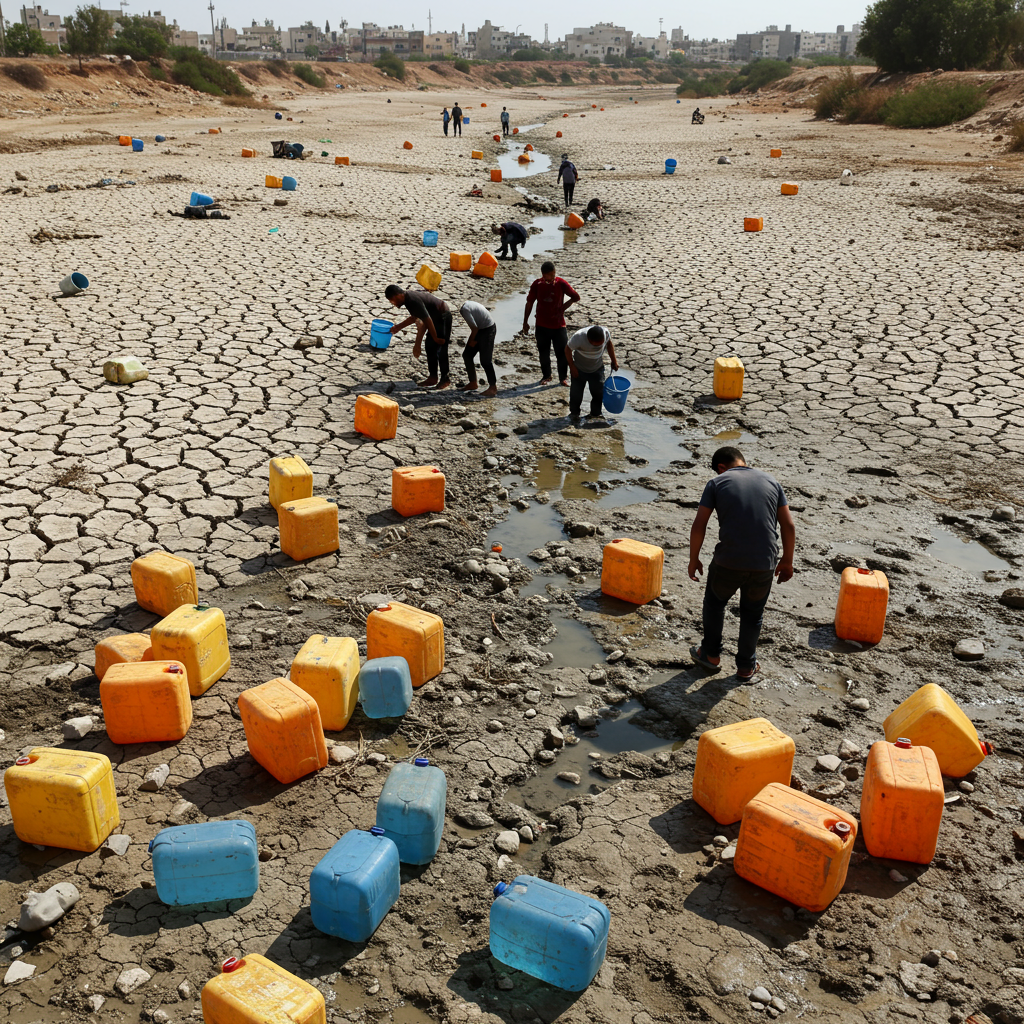Water Crisis in Gaza: UNICEF Sounds Alarm on ‘Man-Made Drought’
The United Nations Children’s Fund (UNICEF) has issued a stark warning: Gaza is rapidly approaching a “man-made drought.” This devastating water crisis is a direct consequence of the ongoing Israeli blockade, specifically the severe restrictions on fuel entering the besieged enclave. Without an urgent end to this blockade, aid officials fear the humanitarian catastrophe will deepen dramatically, potentially leading to children dying from thirst and a rapid spread of deadly diseases.
UNICEF spokesperson James Elder highlighted the dire situation, stating that Gaza’s water systems are collapsing. Fuel is critically needed to operate water pumps, desalination plants, and other essential infrastructure. The fuel blockade, which has reportedly been in place for over 100 days since March, has crippled these vital services.
Crippled Infrastructure and dire Consequences
Estimates indicate that only about 40% of Gaza’s drinking water production facilities remain functional. These facilities are running on rapidly depleting fuel reserves and face imminent shutdown unless deliveries resume.
The destruction of critical water and sanitation infrastructure is also widespread. Reports note extensive damage or destruction to most of Gaza’s wastewater treatment plants, sewage systems, reservoirs, and pipes. Furthermore, power supplies to the main desalination plants, a crucial water source for the population, were reportedly cut off in March.
The consequences of this water scarcity are devastating. Beyond the immediate threat of thirst, a collapsing water system creates a fertile ground for disease outbreaks and intensifies the already chaotic humanitarian situation.
Broader Humanitarian Impact: Malnutrition and Healthcare Collapse
The water crisis is intrinsically linked to the broader humanitarian catastrophe unfolding in Gaza. Lack of clean water exacerbates health issues, including severe malnutrition among children. Recent reports show that over 5,000 children were diagnosed with acute malnutrition in May alone, with an average of 112 children admitted daily for treatment since the beginning of the year. Aid officials stress these cases are preventable, but necessary food, water, and nutrition treatments are not reaching the population due to the blockade.
The fuel blockade also has a crippling effect on healthcare. As of mid-June, only about 37% of health facilities in Gaza were partially functional. Hospitals rely on fuel for generators to power essential equipment like oxygen production, life-support machines, and incubators for infants. Ambulances cannot operate without fuel. As James Elder put it starkly, “Denying fuel doesn’t just cut off supply—it cuts off survival.”
Challenges in Aid Delivery and Violence Against Aid Seekers
The overall delivery of humanitarian aid into Gaza remains severely restricted. A World Food Program report in June indicated that food aid entering the region since late May was only sufficient to provide minimal sustenance for around 300,000 people, a small fraction of Gaza’s population of over two million.
Compounding the crisis are alarming reports of violence against Palestinians attempting to access aid. Hundreds of Palestinians have reportedly been killed near aid distribution sites since late May, with specific incidents reporting dozens of casualties from fire while people waited for assistance. Aid officials have criticized the safety and management of some aid distribution systems, pointing to a lack of clear information on site locations and operating times, often situated in active combat zones, and hindered by communication blackouts due to attacks on infrastructure.
Former U.N. High Commissioner for Human Rights Navi Pillay described the situation as “the most ruthless, prolonged and widespread attack against the Palestinian people since 1948,” suggesting the goal appears to be “the destruction of life in Gaza.” The ongoing conflict since October 7, 2023, has resulted in a tragic toll, with reports indicating over 55,000 Palestinians killed in Gaza, including more than 15,000 children. The severity of the situation has even led the European Union’s diplomatic service to note potential indications that Israel may have breached its human rights obligations under its association agreement with the EU regarding its conduct in Gaza.
The man-made drought and the collapse of essential services underscore the urgent need for unrestricted access for humanitarian aid, including critical fuel supplies, to avert further catastrophic loss of life in Gaza.


